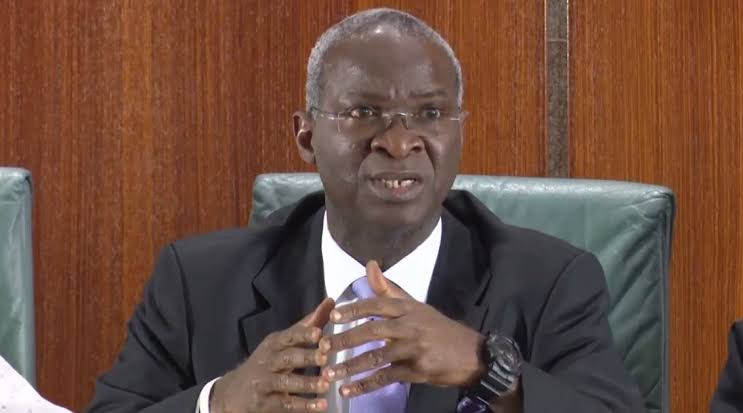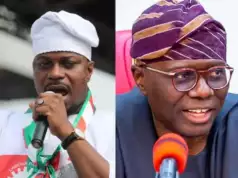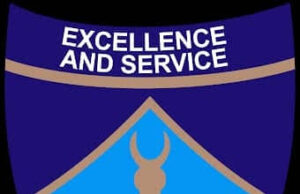Minister of Works and Housing, Babatunde Fashola has called on politicians vying for office in the 2023 general elections as well as citizens of the country not to “disrobe” the challenges of Nigeria in the global market square.
Fashola who was the keynote speaker at The Niche Annual Lecture in Lagos yesterday noted that the number of new 12 million voters registered will not be enough to sway the outcome of the elections next year.
He said the number of newly registered voters in 2022 is way less than the number of voters who registered newly in 2019.
This is as the former member of the House of Representatives, Dakuku Peterside, lamented the current economic downturn in the country, saying over 90 million Nigerians now live below poverty line.
According to Fashola, over 14 million newly registered voters had been recorded prior to the 2019 elections compared to the 12 million documented from this year.
“If you look at the number of people who have newly registered to vote in this election, the last number given by the Independent National Electoral Commission (INEC) is 12,332,336 people. Those are the new voters registered for this election cycle. Whereas in 2019, there were 14,360,053 newly registered voters. While in 2015 there were 6,944,752 newly registered voters.
“So, if the hype about 2023 is anything to go by, the number of 12.332 million newly registered voters does not support it. This is because there are 2,027,657 voters less than the 14 million new voters who registered in 2019.
“We have seen all this hype before and it distracts from the real question which should be: how can democracy, especially the elections coming in 2023 make our lives better and make our country greater. Those, for me, are what we should focus on, not about whether there will be or there will not be an election. We should focus on these questions because democracy is simply concerned about popular participation in choosing a leader or set of leaders.”
He also cautioned against washing the dirty linens of the country in the global scene saying “we can win elections without exaggerating our problems. We can do so by offering credible service and well thought out solutions.”
Fashola averred that the current situation of the country “should challenge a level of sobriety in us not excitement. A serious reflection that says this is where we have reached? My advice is that we can win elections without disrobing our country before the global community. Elections and democracy for us must represent a feast of ideas and choices that bring out the best in us and the best in our country.”
On his part, former member of the House of Representatives, Dakuku Peterside, who also spoke at the event noted that the 2023 election is peculiar as “there will be the burden of governance and this time it will be very challenging after the elections.
The former director general of Nigerian Maritime Administration and Safety Agency (NIMASA) added that, ‘’The reason is that managing the expectation of Nigerian people is not going to be a walk in the park. One is that we face monumental insecurity, and it is very easy to lay blame on everyone other than ourselves. Two is the fact that apart from insecurity, the young people, the talents we expect to step back and build the country, are leaving in droves to other countries, against the backdrop of the ASUU strike. And we are not replacing them.
‘So, if the youth who are supposed to build the country, if they all leave the country, who will build the country. Who are we leaving the country for? Is it the old men and women who don’t have the energy to rebuild the country?”
He also lamented the state of the country’s economy saying “another thing is the challenge of the economy. I don’t think that we have had a time in our recent past where we have over 90 million of our citizens living below the poverty line.
“Debt to revenue ratio is 120 per cent. What it means is that we don’t earn enough to even service debt. The import of that is that we are going to face very stormy days ahead. Unfortunately, the truth is that the rhetoric of politicians is widening our ethnic, religious fault lines, instead of focusing on the challenges confronting us.’’










